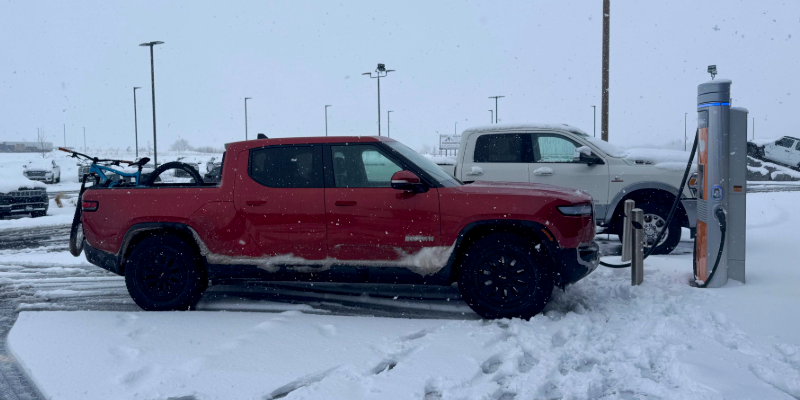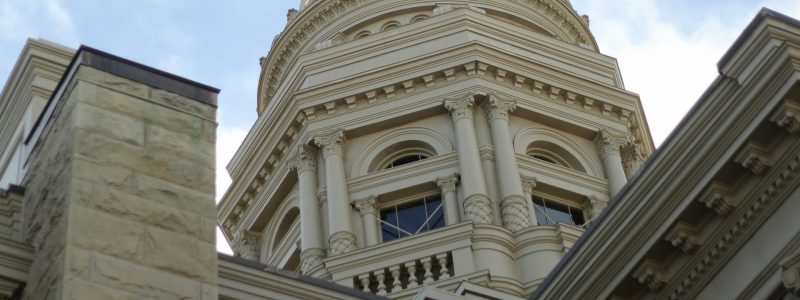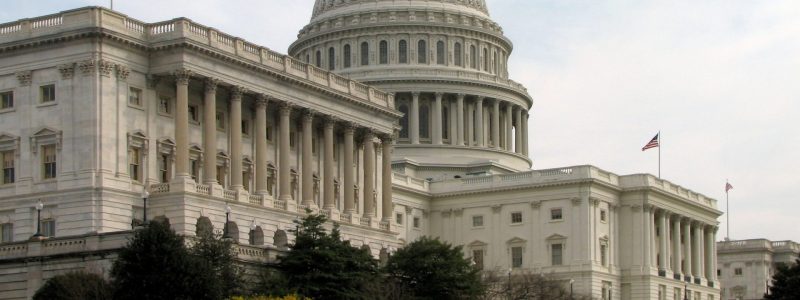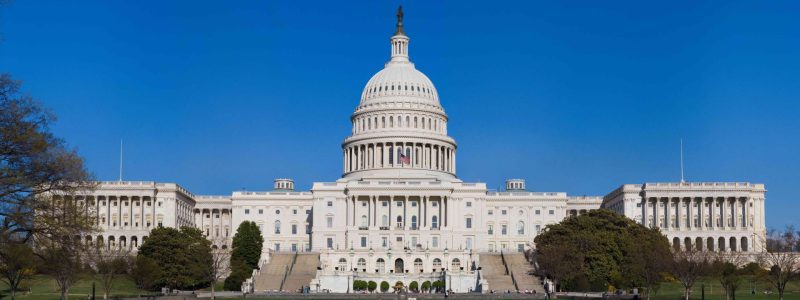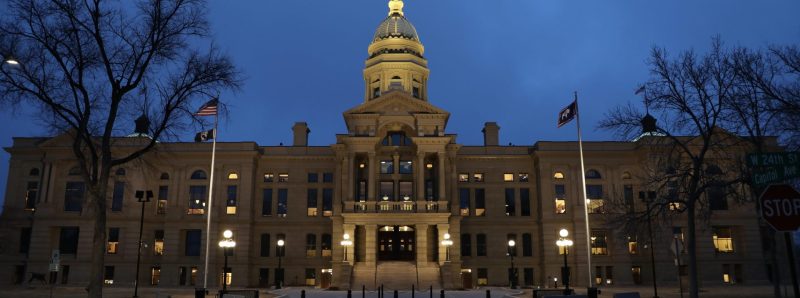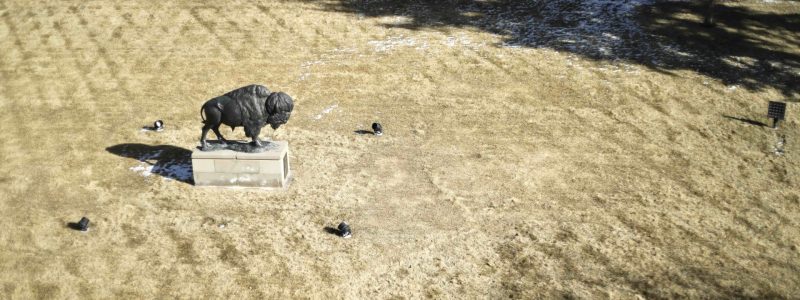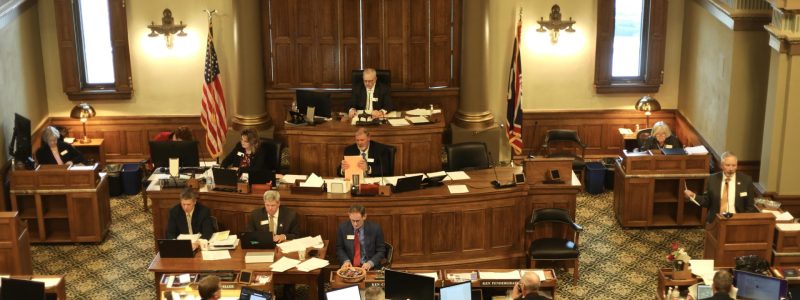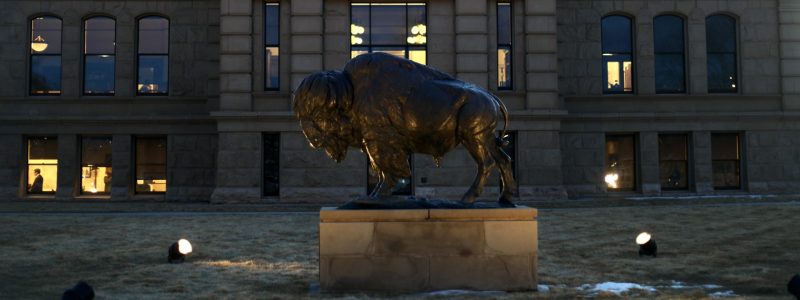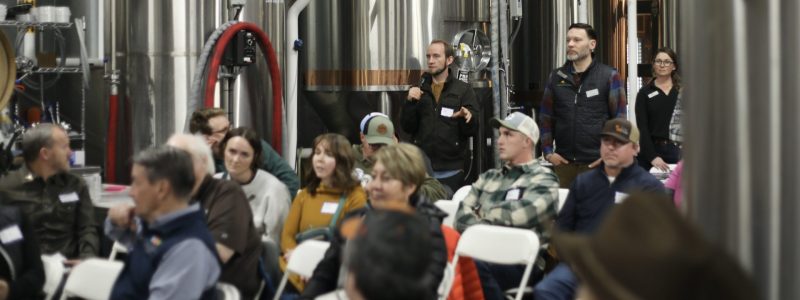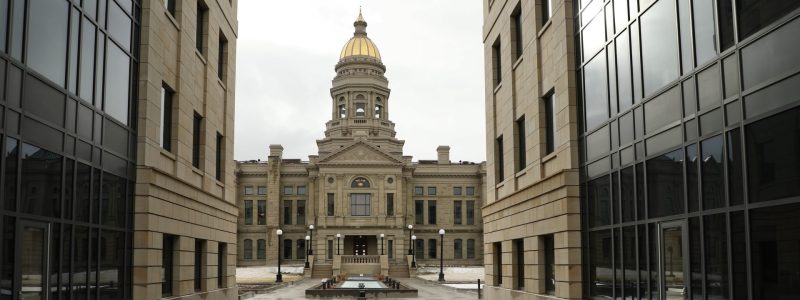Just like that, the 2025 Wyoming Legislature has come to a close.
Over eight frenzied weeks, lawmakers debated hundreds of bills. Some made it into law, while the vast majority met their end. Now that the dust has settled, how did it all shake out for Wyoming’s lands, waters, wildlife, climate, and communities?
More than anything, this session was defined by the bills that never made it to the governor’s desk. Of the 22 priority bills that WOC engaged on, only four were signed into law. Whether you followed every moment or are just tuning in, here’s a look at this year’s conservation wins and losses.
RADIOACTIVE RECKONING: NUCLEAR WASTE STORAGE BILLS FAIL
Before the session even convened in mid-January, WOC’s legislative team had a watchful eye on House Bill 16. By redefining high-level waste to exclude spent nuclear fuel (which is by no means safe!), HB16 would have opened the door for Wyoming to “temporarily” store the country’s radioactive waste.
Thanks to overwhelming pushback from WOC supporters and others, HB16 died when the House Minerals Committee voted to table it. The failure of this bill represented an important victory for Wyoming’s environment, and for the future generations who would be shouldered with waste that turned out to be permanent rather than temporary — which very likely would have been the case.
The House Minerals Committee also voted against Senate File 186, another bill concerning temporary nuclear waste storage, citing the need for more information and public comment on such an important topic. HB16 and SF186 may not have survived this session, but policies embracing nuclear, including storage of nuclear waste, have momentum and will likely be discussed in this interim and future sessions. We’ll continue to keep a close eye on them.
ROOFTOP SOLAR’S ROLLERCOASTER RIDE
The session was a rollercoaster ride for rooftop solar and net metering, the policy that allows rooftop solar customers to be credited for power they generate but don’t use. We celebrated the early death of Senate File 111, a bad bill that would have made it harder and more uncertain for Wyomingites to invest in rooftop solar.
The path of House Bill 183 was a little more complicated: In its original form, HB183 would have expanded access to rooftop solar — but a poison pill amendment passed by the Senate Minerals Committee would have stripped key protections for rooftop solar owners. Because of this, and a number of other bad amendments that eroded the benefits and intent of the bill, we were glad to see HB183 meet its end in a close vote on the Senate Floor.
It’s important to note that the debate around net metering was different then in previous years. Although it was frustrating to see HB183 take a wrong turn, the strong bipartisan and community backing for rooftop solar highlights the progress we’ve made in the nine years since the discussion around net metering resurfaced at the legislature.
ANTI-PUBLIC LANDS MEASURES DEFEATED
The shortsighted effort to transfer public lands to state ownership has reared its ugly head again in states across the West. Senate Joint Resolution 2 demanded that Congress hand over all federal public lands in Wyoming (except for Yellowstone) to the state. While SJ2 wouldn’t create any law, it threatened the management of Wyoming’s public lands and urged Congress to take dangerous actions. In a dramatic sequence of events, SJ2 failed in a Senate vote, then was revived — before, thankfully, dying for good.
The legislature considered other anti-public lands bills, too: Senate File 105 would have limited opportunities for new public lands access and eroded private property rights. Similarly, House Bill 118 would have restricted future common sense land exchanges or sales that increased the percentage of federal public lands in Wyoming. Like SJ2, we’re glad to report that these bills died this session.
If you spoke out against any of these measures, thank you! The threats to our irreplaceable public lands are far from vanquished — but together, we’ll keep reminding decision makers how much these landscapes mean to Wyomingites and our quality of life.
In fact, you can take action on behalf of our public lands right now: Tell Wyoming’s congressional delegation that you oppose the mass layoffs of our public lands stewards — sign the letter now!
WILDFIRE RESTORATION FUNDING SURVIVES—WITH CUTS
After last year’s devastating fires in northeast Wyoming, Gov. Gordon requested $130 million to fend off an impending barrage of invasive grasses. After funding was slashed early in the session, Senate File 148 offered a way forward, reinstating the $130 million request and acting as an insurance policy against future attacks on these vital dollars.
But as the session hurtled toward its final days, senators threw funding priorities into chaos when they decided not to pass a supplemental budget. A compromise bill, Senate File 152, provided just shy of $50 million, rather than the original $130 million request, for invasive weed control, and gained approval from both the House and the Senate. Money for landscape restoration is sorely needed to maintain rangeland health and protect against future catastrophic wildfires. You can expect to see the discussion around these funds pick back up next year.
WINS FOR CULTURAL PRESERVATION AND TRIBAL NOTIFICATION
We saw important progress this session on tribal cultural preservation and notification: Senate File 91 strengthens protections for cultural resources by making the vandalism of petroglyphs and other historic inscriptions on state lands a criminal offense. Senate File 16 ensures tribal governments are notified of industrial siting permit applications and acknowledges their stake in development decisions, but falls short of granting tribes formal participation in the permitting process.
Both bills, which were supported by the Northern Arapaho and Eastern Shoshone governments, made it to the governor’s desk and were signed into law!
FUNDS SECURED FOR CONSERVATION PROJECTS
Each year, the Wyoming Wildlife and Natural Resource Trust invests in important conservation projects that improve watershed health, strengthen wildlife habitat, and benefit communities. Senate File 88 was the approval package for 11 such projects across the state, representing the largest annual investment the WWNRT has proposed to date.
We were excited to see near unanimous support for SF88 along its journey through both chambers and to the governor’s desk, where it was eventually signed into law. Now, Wyoming will see $16.4 million for wildlife, rangeland, and watershed projects in the next fiscal year.
From the entire team at WOC, a sincere thank you for sticking with us this session — and for your engagement throughout. Your many messages to legislators, your questions, and your support helped push many of the bills we’ve touched on above (and others we weren’t able to discuss here) in the right direction.
Next up: Keep an eye out for our Conservation Vote Report in the coming weeks, which dives deeper into the year’s most important bills. And there will be plenty of opportunities to stay engaged during the interim, when committees will pick up the discussions around nuclear waste storage and public lands issues, among other topics.
Want to stay in the loop on important legislation and opportunities to take action? Sign up for our legislative emails!
